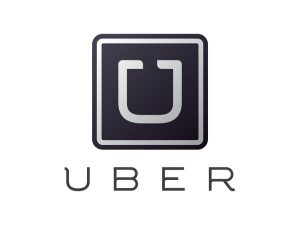 Top Class Action Lawsuits
Top Class Action Lawsuits
I always feel like…Uber is watching me…? Uber just can’t seem to stay out of court these days. This week they got hit with a privacy class action lawsuit brought by Lyft drivers who assert that Uber used “secret” software to spy on them, allegedly allowing Uber to see Lyft’s coverage areas and which drivers worked for both ride share companies.
Allegedly referred to internally by Uber as “Hell”, the software enables Uber personnel to gain unauthorized access to Lyft computer systems, pose as Lyft customers and see the locations of Lyft drivers and their unique Lyft identification, according to the complaint.
Filed by a former driver for Lyft, Michael Gonzales, against three related companies, Uber Technologies Inc., Uber USA LLC and Rasier-CA, the lawsuit seeks to represent Gonzales and other Lyft drivers whose electronic communications and locations were allegedly intercepted, accessed, monitored or transmitted by Uber.
According to the Uber privacy lawsuit, “Each Lyft ID is unique, akin to a Social Security number, which allowed Uber to track Lyft drivers’ locations over time.” Uber used the “Hell” software program from at least 2014 to 2016, the lawsuit asserts.
Uber allegedly cross-referenced location data it gathered on Lyft drivers with its own internal records to determine which drivers were working for both companies so it could target them “in order to improve the Uber platform and harm the Lyft platform,” the complaint states. “Uber accomplished this by incentivizing drivers working on both platforms to work primarily for Uber, thereby reducing the supply of Lyft drivers, which resulted in increased wait times for Lyft customers and diminished earnings for Lyft drivers.”
Allegedly, Uber would direct “more frequent and more profitable trips” to drivers who it knew were also working for Lyft, thereby encouraging those drivers to primarily work for Uber, the complaint alleges.
Gonzales worked as driver for Lyft from 2012 to 2014 but never worked for Uber, according to the complaint. He seeks to represent a national class and a California class of drivers.
The proposed national class is defined in the complaint as “all individuals in the United States who (1) worked as drivers for Lyft, (2) while not working for Uber, and (3) whose private information and whereabouts was obtained by Uber by accessing computer systems operated or used by Lyft and the class.” The proposed California class is defined identically, except for removing the words “in the United States.”
According to the complaint, public reports estimate some 315,000 people have driven for Lyft in the United States, and 60 percent of them may have also driven for Uber. As such, the number of members in the proposed national class may be in excess of 126,000, while “common sense dictates that thousands of those individuals are California residents,” the proposed lawsuit states.
The proposed class action claims violations of the Electronic Communication Privacy Act, the California Invasion of Privacy Act and the California Unfair Competition Law and seeks injunctive relief and damages for the alleged privacy invasion.
The case is Michael Gonzales v. Uber Technologies Inc. et al, case number 3:17-cv-02264, in the U.S. District Court for the Northern District of California.
Top Settlements
It’s a Record Settlement—and it’s Official. A $2.1 billion settlement has received final approval, ending the massive Canadian Volkswagen (VW) emissions scandal class action caused by VW and Audi vehicles fitted with the now infamous defeat device, which allowed VW and Audi to cheat emissions standards testing.
According to a report in the Canadian national newspaper, The Globe and Mail, members of a Canadian class action can submit claims for reimbursement this week, as an Ontario court has approved a $2.1 billion settlement plan.
Some 105,000 people who either purchased or leased certain Volkswagen or Audi vehicles with two-litre diesel engines that were involved in the emissions scandal will each receive a payment between $5,100 and $8,000, according to the written judgment by Superior Court Justice Edward Belobaba.
Additionally, many class members will be able to choose whether to return their vehicle at the buy-back price as of mid-September 2015, before knowledge of the defeat device was made public, or keep their car and receive an emissions modification that is approved by government regulators, according to the Canadian VW settlement.
This settlement, however, may not be the end of the litigation. Attorneys representing the plaintiffs said that if emissions modifications for any of the vehicles are not approved and implemented around summer 2018, and the owner chooses not to return their vehicle, they can choose to continue litigation. If enough such owners come forward, the court may choose to hear the case again as a class action lawsuit.
Currently, US regulatory authorities are evaluating fixes Volkswagen has provided for three generations of affected VW and Audi vehicles.
Another biggie this week… The Hard Rock enterprises has agreed to pony up a $51.5 settlement ending a consumer fraud class action lawsuit brought by the buyers of a Hard Rock Cafe condo-hotel complex and the company who alleged the developers of the condo hotel units violated land sale regulations. Get outta town!
According to the terms of the Hard Rock settlement, each class member would receive a payment of approximately $95K. Court fees and costs would also be paid from the settlement fund. The developer, Tarsadia Hotels, would contribute $10 million and third-party defendant Greenberg Traurig LLC would put in the remaining $41.15 million.
In May 2010, Laurie and Dean Beaver filed a lawsuit against the Hard Rock Café condo-hotel consortium, alleging the defendants failed to inform them that they could rescind their property purchases within two years of their signing date.
Development began on The Hard Rock San Diego in 2005. It is a 12-story building with 420 condo-hotel units located across the street from the San Diego Convention Center and a few blocks from the San Diego Marina and Seaport Village, according to court documents.
The proposed settlement requires final court approval.
The case is Dean Beaver et al. v. Tarsadia Hotels et al., case number 15-55106, in the U.S. Court of Appeals for the Ninth Circuit.
Ok – That’s a wrap for this week. See you at the bar!

 Top Class Action Lawsuits
Top Class Action Lawsuits 